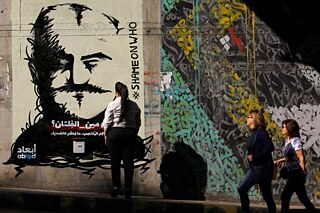Lebanon is caught in a vicious circle of gender-based violence (GBV) and discrimination that deprives women and girls of meaningful participation in social, economic, and political life. Most abusive and discriminatory acts against women and girls in Lebanon are the direct result of unequal treatment of men and women within the Lebanese law and the influence of a patriarchal society that thrives on the control and oppression of women.
Since its establishment in 2011, ABAAD – Resource Center for Gender Equality has been courageously and creatively testing new approaches to address the issue of GBV and promote gender equality as an essential condition of sustainable social and economic development in the Middle East and North Africa.As a leading actor promoting gender equality in the region, ABAAD advocates the development and implementation of policies and laws that enhance women’s effective participation. As part of a holistic and rights-based approach to advancing gender equality, ABAAD is determined to tackle the root causes of inequality and violence, including gendered social norms. In 2017, ABAAD’s team, comprising dedicated activists, lawyers, consultants, social workers, and researchers, celebrated a historic legal step for women in Lebanon, as the Parliament abolished Article 522 of the Penal Code – the infamous “rape-marriage law”. This accomplishment was a direct outcome of several national initiatives, including a successful nation-wide advocacy campaign led by ABAAD under the title “A White Dress Doesn’t Cover Up Rape – #Abolish_ 522"
Judge the Rapist. Not the Victim.
Building on the success of previous campaigns, and in a larger effort to address the issue of rape in Lebanon, ABAAD, in 2018, started a nation-wide campaign entitled “Shame on Who,” calling for the prosecution of all rapists and promoting a public opinion that supports the victim instead of shaming her. The campaign was launched during the “16 Days of Activism against GBV” with a social experiment that captured the negative perceptions and attitudes of society towards rape victims. The experiment, conducted in several parts of Lebanon, shows that many people are ignorant and prejudiced when interacting with a rape victim, choosing to accuse, blame, and shame her. Hence the campaign slogan: Judge the Rapist. Not the Victim. In a press release, ABAAD stated: “This type of reaction devastatingly affects the victim’s psychological and social well-being and promotes a ‘culture of silence and concealment’. Overcoming such problem requires community awareness-raising in order to support victims of rape, demand justice, and punish criminals with deterrent penalties.”Ghida Anani, Founder & Director of ABAAD, explains, "The aim of this campaign is to press for tougher sanctions and accelerate trials against rapists in cases of sexual violence and rape, in particular, and to change social perceptions that stigmatize and shame female rape victims, pushing them to cover up the crime. It also aims to create a supportive public opinion that condemns the act of rape as a punishable crime.” She adds, “We urge female rape victims to exercise their rights, by raising their voices and reporting the rapists/criminals, seeking retribution and bringing them to justice.”
ABAAD has also used street art to change Lebanese attitudes to rape. The faces of alleged rapists, as described by their victims, went up as pictures on the walls of buildings all over Beirut, sometimes accompanied by recordings of testimonies from the victims.
March 2019

